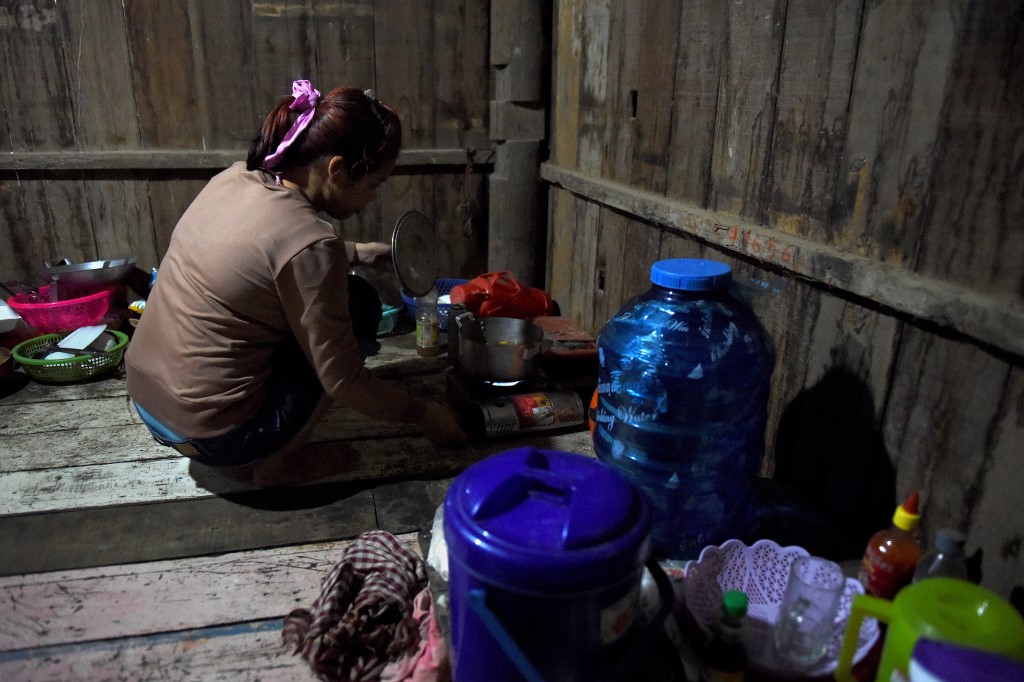While Covid-19 has shone an uncomfortably bright light on the inequalities that fragment our societies, it has pushed another kind of pandemic even deeper into the shadows.
Under the smokescreen of a deadly virus, globalised human trafficking has become harder to track for those determined to put a stop to exploitation. This is especially true in Southeast Asia, where porous borders, pockets of unemployment and labour demand in other countries, forced displacement and strained regional cooperation make irregular migration more likely and trafficking hard to prevent, even when authorities aren’t preoccupied with stopping the spread of the novel coronavirus.
While the economic fallout of the pandemic remains hard to estimate, experts point to the projected fallout of Covid-19 to create ample conditions for human trafficking.
“At first glance, enforced quarantine, curfews and lockdowns, travel restrictions, and limitations on economic activities and public life may seem to dissuade crime, but they may also drive it further underground,” argued Rebecca Miller, a specialist at the UN Office on Drugs and Crime (UNODC) working to prevent human trafficking and migrant smuggling in Southeast Asia and the Pacific.
Miller warns that dramatic increases in unemployment and reductions in income, especially for low wage and informal sector workers, mean that significant numbers of people who were already vulnerable find themselves in even more precarious circumstances as jobs evaporate, savings dry up and employers pass down the “need to lower production costs due to economic difficulties” and “less controls by the authorities”.
Miller notes that even before the pandemic derailed the world, monitoring human trafficking was difficult largely due to the fact it is not always easy to identify victims. Even if they do feel victimised, trafficked people are often too afraid to contact authorities or seek help, especially if they are in the host country illegally. If people are taken across borders, it is all the more challenging for law enforcement to build a case and arrest traffickers residing abroad.
UNODC research shows that while more countries around the world are identifying victims of trafficking and prosecuting traffickers at higher rates, it is not clear whether this increase is a result of growing levels of trafficking or simply a reflection of greater law enforcement activity.
“Reports are suggesting that human traffickers are adjusting their business models to the ‘new normal’ created by the pandemic, especially through the abuse of modern communications technologies,” Miller said, explaining that Covid-19 has resulted in decreased state and non-governmental organisation (NGO) capacity to address trafficking.
“Most importantly, the pandemic has exacerbated and brought to the forefront the systemic and deeply entrenched economic and societal inequalities that are among the root causes of human trafficking.”
With the World Bank estimating that Covid-19 will likely bring about the first rise in global poverty since 1998 – pushing 49 million people into poverty this year – the pandemic is creating conditions that may see a rise in human trafficking and leave victims, many of them women and girls, unprotected and unable to seek help, especially if they are outside their home countries.
The International Labour Organization (ILO) predicts 1.6 billion of the 2 billion people employed globally in the informal labour sector will be drastically affected by the pandemic and, specifically, the measures adopted by states to flatten the infection curve.
Regionally, this is significant as six out of the 10 ASEAN member states are considered lower-middle income economies by the World Bank, including Cambodia, Indonesia, Laos, Myanmar, the Philippines and Vietnam. The ILO estimates that 62-90% of employment in low and middle-income countries is informal, with 46% of all Southeast Asians working in “vulnerable employment” as of 2018.
As such it is the region’s poorest who are particularly susceptible to global crises like Covid-19. Only Singapore and Brunei Darussalam are high-income countries by the World Bank’s estimates, while Malaysia and Thailand are upper-middle income.
These discrepancies in wealth and economic development, combined with political, historical, and, in some places, environmental factors contribute to Southeast Asia’s longstanding problem with human trafficking – one that has only been exacerbated by Covid-19.
“Trafficking [for] sexual exploitation is more likely to be detected and [is] more often prosecuted, but most prevalence studies suggest that trafficking for purposes of forced labour is the most common form of the crime,” suggested Jonathan Martens, senior migrant protection specialist at the International Organization for Migration’s (IOM) Asia and the Pacific regional office.
IOM’s work has uncovered exploitation throughout the agriculture, construction, domestic work, fishing and manufacturing sectors across the region, and points to Malaysia, Thailand and Singapore as the most recent chief destinations for victims of trafficking in mainland Southeast Asia.
Research from UN Women found, as of 2016, an estimated 1.5 million people in the Greater Mekong Sub-region were victims of human trafficking – representing an almost threefold increase from 2006, which they perceived as a sign that trafficking in Southeast Asia was on the rise.
Lock downs and social distancing [practices] are not affecting everyone in the same way – migrants, and especially migrants with an irregular legal status, are often excluded from the kinds of social protection measures that governments have introduced
Covid-19, Martens says, has only made a bad situation worse. He notes that criminal organisations are known for exploiting major structural and societal disruptions, which this pandemic certainly provides.
“It is also worth bearing in mind that lock downs and social distancing [practices] are not affecting everyone in the same way – migrants, and especially migrants with an irregular legal status, are often excluded from the kinds of social protection measures that governments have introduced to help people affected by job losses and the economic downturn,” he warned, adding that migrants also typically have a limited social network in their countries of arrival.
In May 2020, British supermarket giant Tesco released their Modern Slavery report for 2019-2020, having commissioned an independent human rights consultancy firm Impactt to look into allegations of abuse in Malaysia and Thailand in Tesco’s supply chain.
Interviews with 168 migrant workers in Malaysia who’d been employed in Tesco’s supply chain through labour brokers uncovered numerous cases of passport retention, unexplained and illegal wage reductions and “excessive” overtime. Heavy indebtedness to labour brokers was also a common theme highlighted by interviews with 187 migrant workers in Thailand.
Martens notes that trafficking is often confused with other forms of irregular migration. Furthermore, official channels for reporting labour exploitation frequently lack the resources to mount full investigations and establish migrant workers as victims of trafficking.

“It doesn’t matter how exceptional a state’s victim protection system may be if trafficking victims are not being identified,” he added, noting this further decreases the chances of prosecuting traffickers and preventing trafficking.
The ASEAN framework has made progress in aiding victims of trafficking but as Martens of the IOM notes, the new rights it affords them ultimately come down to the commitment of member states. He perceives large gaps among the states between the reality of governance and what legislation promises, which includes reparative compensation to recognised victims that he says is not as extensive nor as deep as it could be.
Martens said other, state-centric measures could play a big role in helping people in exploitative situations.
“Including migrants in national social protection schemes would be one important step to take to limit the expected increase in trafficking in persons,” he suggested.
Whether for forced labour, arranged marriage, sexual exploitation or debt bondage, human trafficking takes many forms and guises – different types of trafficking create different experiences for victims. For Blue Dragon Children’s Foundation in Vietnam, it is sexual exploitation and child labour exploitation that they see the most, though Vietnamese victims are increasingly reported in Malaysia, the Middle East and fishing operations on the open seas.
Some 90% of Vietnamese victims are trafficked to China, where Blue Dragon estimates 80% are sold in sex slavery or arranged marriages, degraded from people to property by the social impact of China’s now-abolished One-Child policy that led to an imbalance of men to women.
Michael Brosowsi, founder and co-CEO of the anti-trafficking organisation, said local knowledge of trafficking is still low.
“When children go missing they may be reported as a missing person’s case, without people realising that this is actually trafficking and slavery,” he said. “Much of the trafficking here is done by deception. People are lulled into a false belief that they are going for a job or with a friend.”
He points to low levels of education coupled with a lack of opportunities in rural areas as key drivers of vulnerability to trafficking. He also adds this is compounded by a widespread belief that there are more, better-paying jobs available overseas.
While Brosowski says public awareness appears to be increasing, as well as a greater commitment from the Vietnamese government to address trafficking, it still remains difficult to track trends – an exercise now hampered by the global focus on the Covid-19 pandemic.
Brosowski said his orgnisation’s number of victim assists is “much lower than normal” but, in spite of travel restrictions imposed throughout the region and the epicentre of the virus in China, Blue Dragon has still rescued nine girls and women since the pandemic began. On top of this, they played a role in the rescue of 11 women and two children in a collaborative operation with the Chinese police, which resulted in the victims being repatriated.
Clearly, the pandemic has not stopped traffickers, but it has hampered the ability of agencies to identify and assist victims, as well as prosecute and stop those responsible. Furthermore, the conditions that many victims of trafficking now face have been greatly exacerbated by Covid-19, further heightening the urgency with which the issue of human trafficking must be addressed.
For Miller and UNODC, essential and practical operations to support the victims of trafficking have become a challenge as countries adjust their priorities.
“NGOs working with UNODC speak of a significant percentage of their beneficiaries losing their sources of income and access to food due to pandemic-related measures. They report of loan sharks promising low interest loans to these people, increasing the possibility of debt-bondage,” Miller said.
“This means a vulnerable population has now become even more exposed to the risk of severe exploitation as they try to identify means to secure their livelihoods.”
Brosowski also looked with wariness to the pandemic-affected future.
“We really have no doubt that the worst is yet to come. People are desperate, and when they are facing starvation or homelessness and someone offers the possibility of a good job, they will be prepared to take that risk,” he warned.


